Public consultations are undertaken as part of a constitutional process to actively seek input from citizens and organized groups on constitutional content and the constitution-making process. In a participatory process, constitution-making body (CMB) communications on their activities, civic education and public consultations are interdependent tasks. These participatory mechanisms have the potential to assist CMBs to develop two-way feedback mechanisms, to give due consideration to informed citizen input and to enable citizens to understand the decisions reflected in the new/revised constitution.
Primer
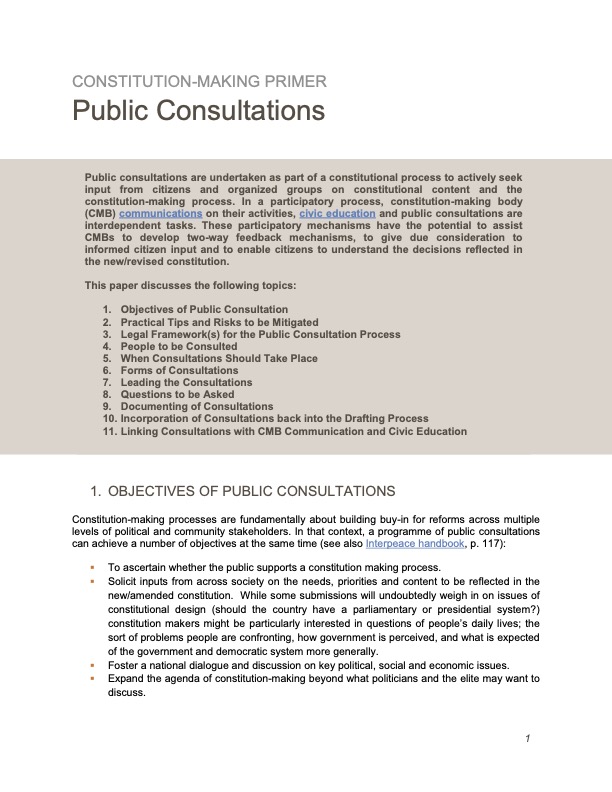
Sample Materials: Strategic Plans and Workplans
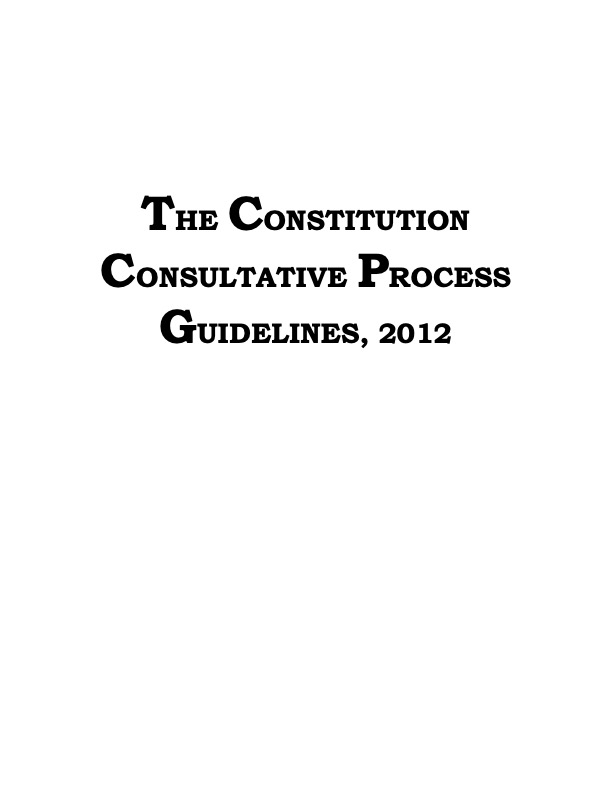
These guidelines&nbspgovern the nomination or election of delegates to the various fora in the consultative process, the process of collecting and collating comments on the draft Constitution and the procedures to be followed at meetings of the various fora in the consultative process.
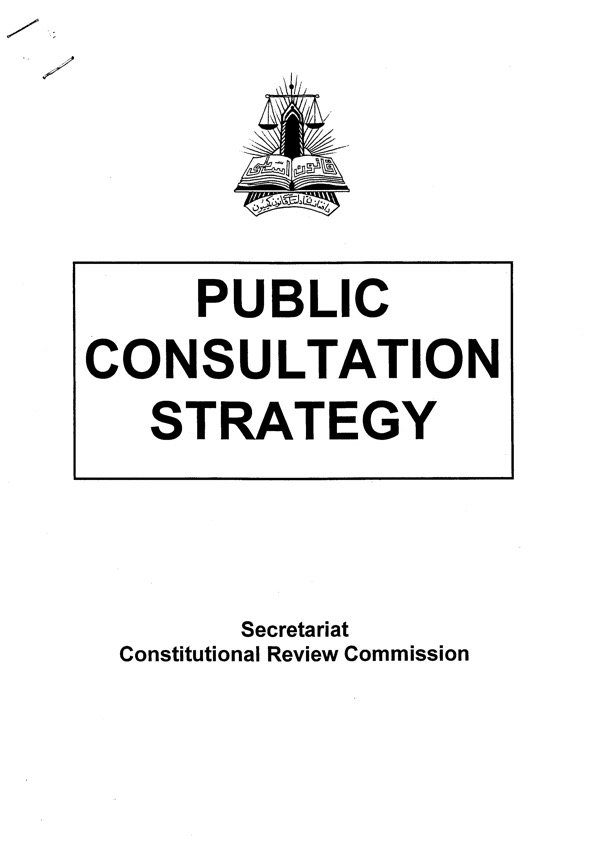
This document sets out the strategy for public consultation during the constitution-making process in Afghanistan. It explains: how the public is to be educated about the constitution and the subsequent consultation process, including who is to be consulted with, when and where. Finally, it sets out how the information is to be processed and used, and ends with setting out the logistical support necessary and the role of the media in the consultation process.
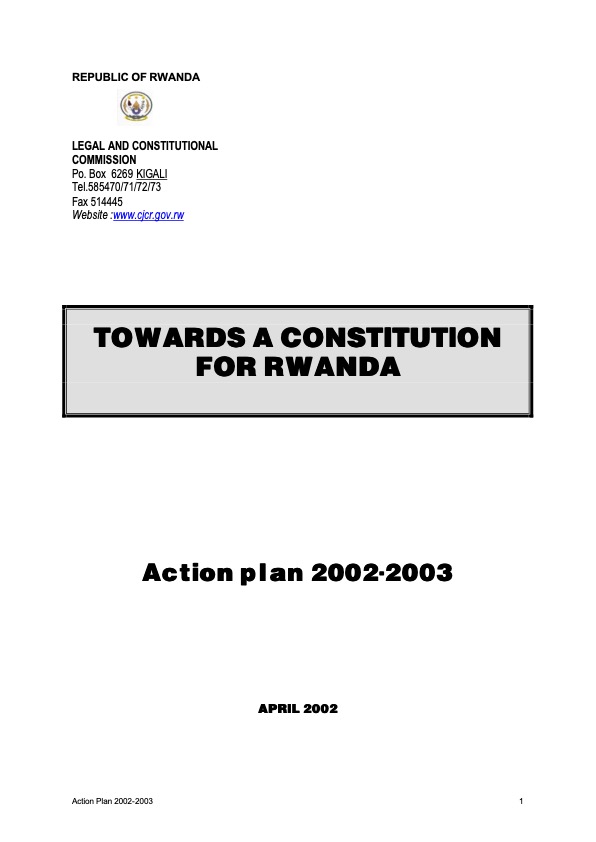
This document is the official strategic and action plan (with budget) for civic education and public consultation for the 2002-2003 Rwandan constitution making process.
Sample Materials: Consultation Materials
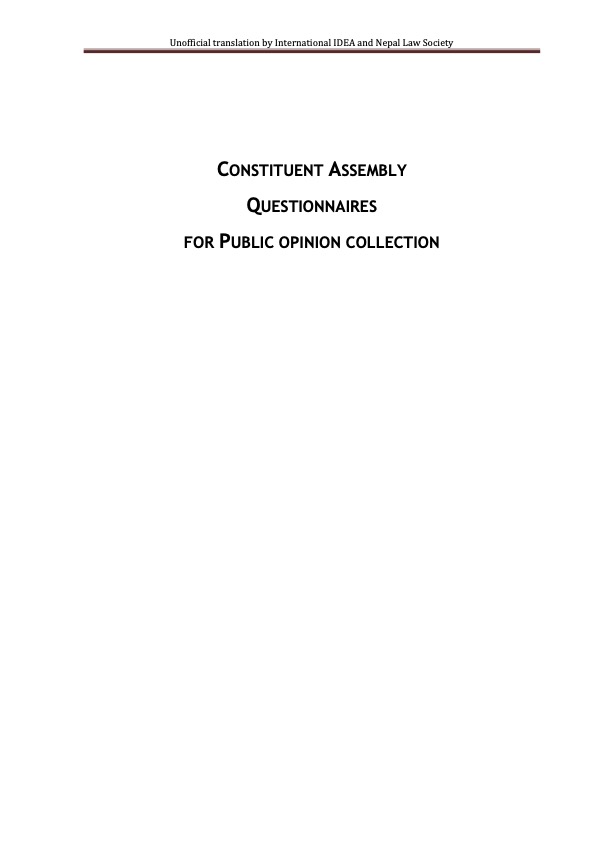
This collection of documents, translated by IDEA and the Nepal Law Society, consists of questionnaires created by the Committees of the Nepal Constituent Assembly for use in collecting public opinion as well as, in some cases, information from experts.&nbsp Twelve questionnaires are included.
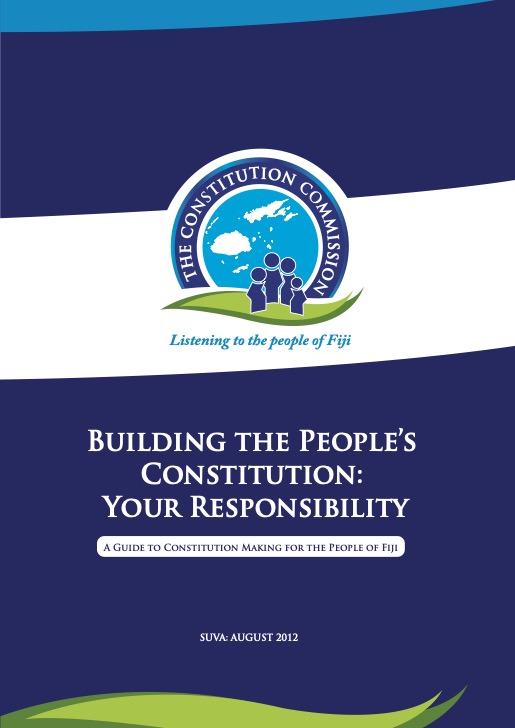
This document is a comprehensive civic education manual provided to the people of Fiji in 2012 to help them understand the the new constitution, and the constitution-making process itself. It canvasses the following topics: the political context that gave rise to the need for a new constitution, the anticipated constitution-making process, the differences between Fiji's three constitutions, the guiding principles of the new constitution, the rights to be included in the new constitution along with the mechanisms through which they will be enforced/upheld, and the systems of government, including the structure of the executive, the design of parliament, the judiciary, and corruption, among other things. The document concludes by addressing the concern that the new constitution may be futile in light of the political coups that were characteristic in Fiji. Finally, the document translates the most important terms referenced therein from English to i-Taukei and Hindi, and includes a copy of the 1997 Constitution.
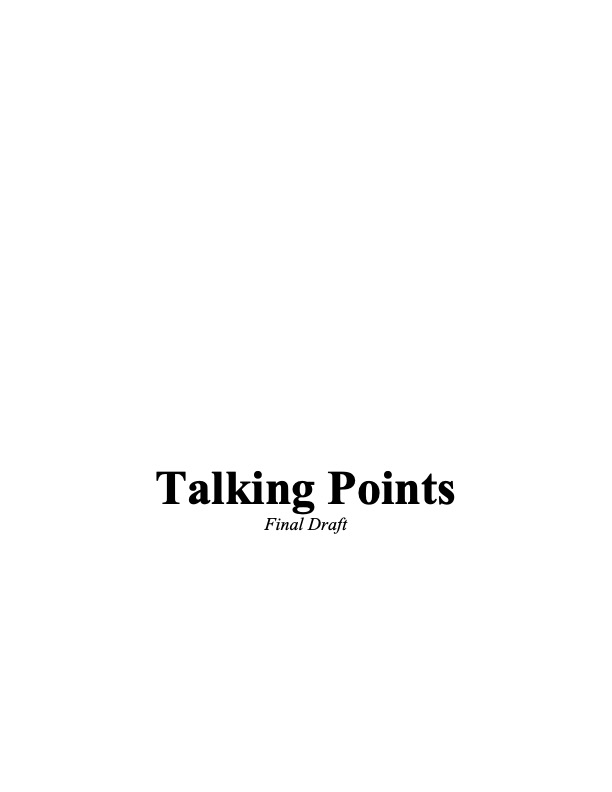
This final draft of talking points, agreed to by ZANU-PF, MDC-T, MDC-M and the Chiefs in February 2010, sets out discussion topics related to various substantive constitutional topics, including: founding principles; arms of the state; systems of government, the bill of rights; land and natural resources; and elections.
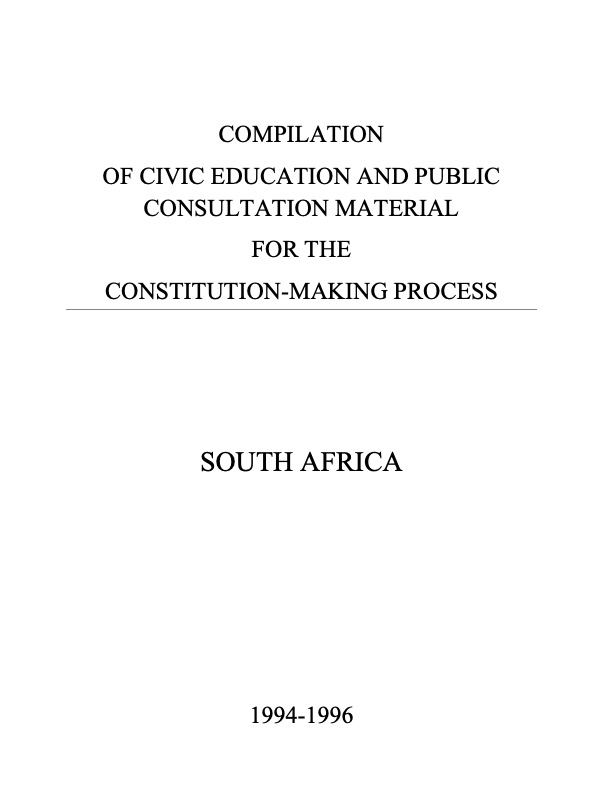
This document contains a compilation of public consultation and educational material (flyers, comic strip, etc.) used to engage South Africans in the constitution-making process and make the work of the Assembly as accessible as possible.
Sample Materials: Reports on and Analysis of Consultations
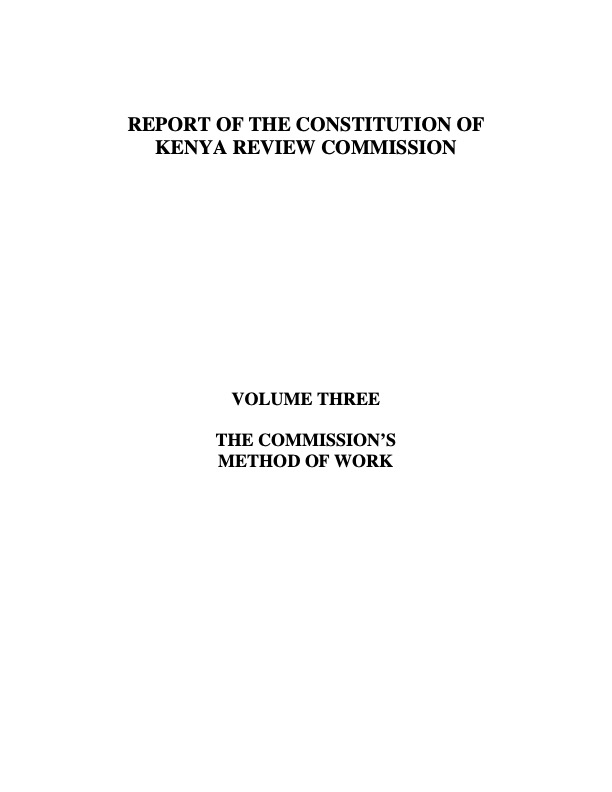
This document is a report on the outcomes of public consultations in the Rangwe Constituency of Kenya. It is undated, but known to come from the 2000-2004 constitution making process. It contains background on the constituency, an explanation of the outreach/consultation methodology and forums, how civic education was conducted, and specific public inputs organized into 43 thematic areas.
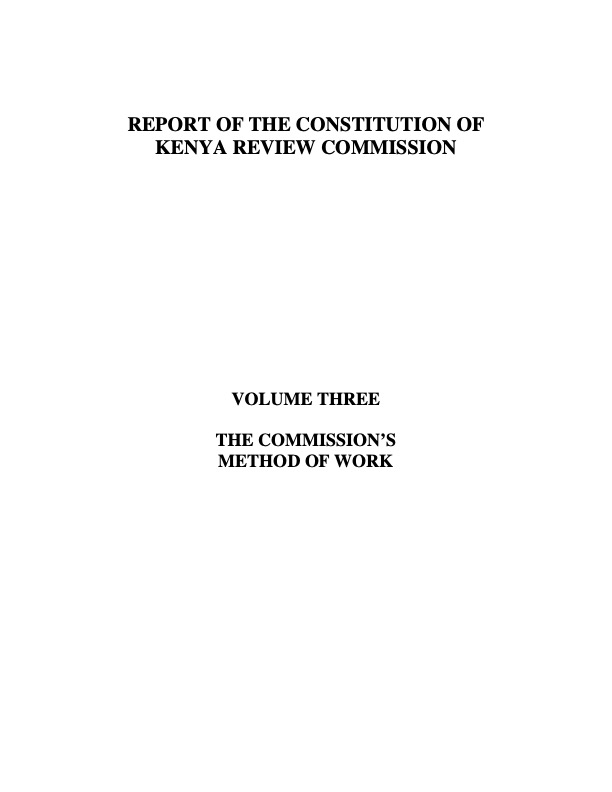
This report of the CKRC comprehensively discusses the Commission's mandate, structure and activities as part of the post-2000 constitution-making process. The report is structured around the CKRC's activities before, during and after the 2003-2004 National Constitution Conference (NCC).
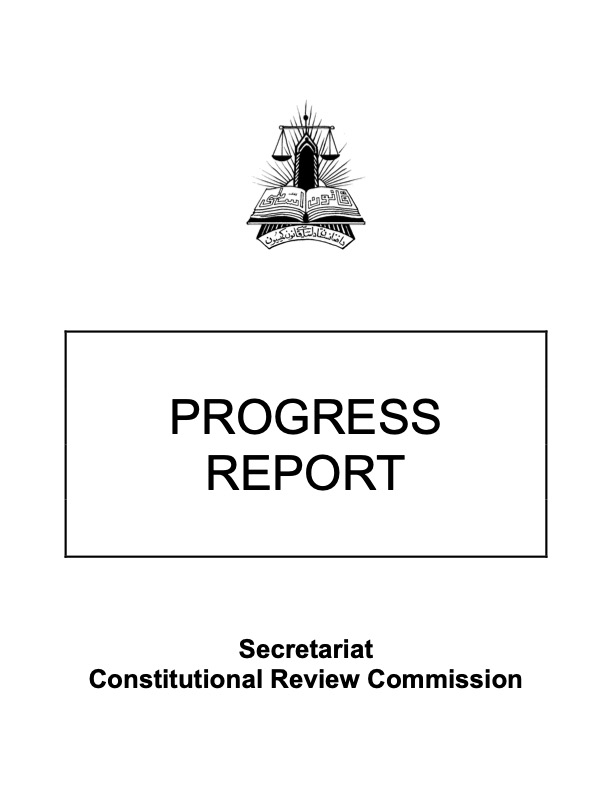
This is a document outlining the progress of the constitution-making process in Afghanistan by mid-2003. In addition to providing an overview of the process, it sets out the various constitution-making bodies, their functions, and their progress as of the date of writing. It also discusses the role of the UNDP and UNAMA and the status of resource mobilisation.
Confidentiality Provision: This document is confidential and intended solely for the use of United Nations staff. The document should not be reproduced or distributed to any person outside the United Nations.
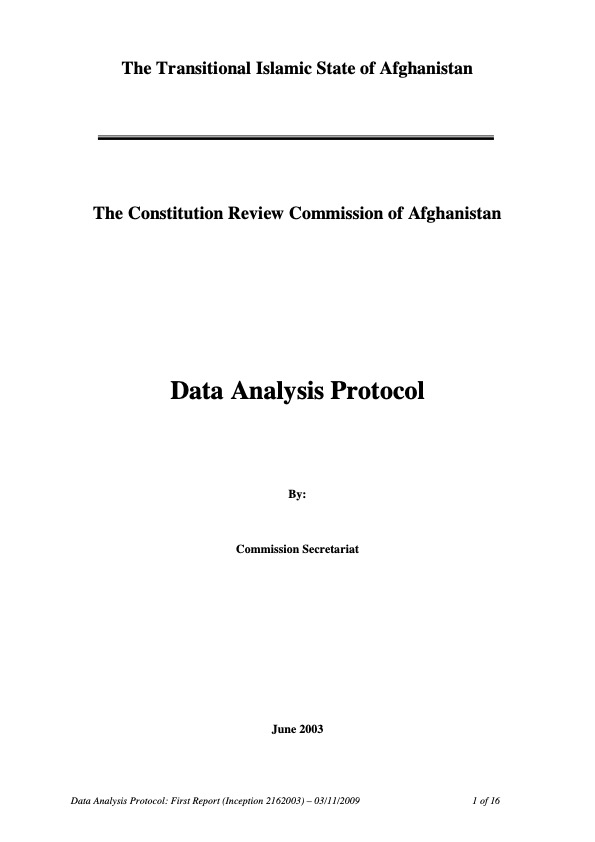
This data analysis protocol sets out the framework for analysing the views received from the Constitutional Commission's public consultation. It outlines the proposed reporting formats, and proposes timelines for data analysis and logistical requirements.
Further Reading
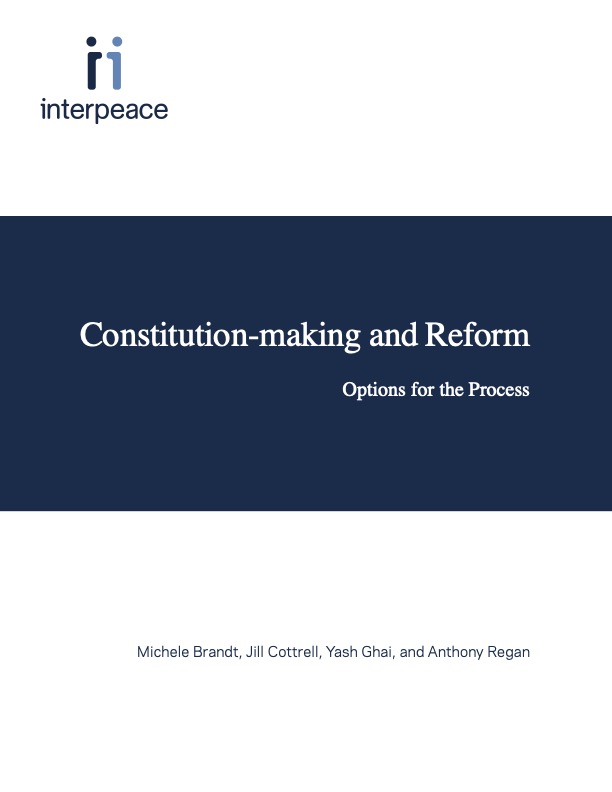
This is a comprehensive guide to constitution-making and reform. The book identifies the tasks that need to be carried out, the procedures that can be used, and who can do them. It is intended for a wide audience and to be a guide for anyone who is engaged in a constitution-making process, or who is interested in improving constitution-making practice. It includes a discussion on the following topics: Emerging guiding principles, Impacts of Adherence to Guiding Principles, The Role of a Constitution Issues of Process Key Components and Issues of the Constitution-Making Process Tasks and Responsibilities in Constitution-Making Assessing the Impact of Constitution-Making Who Does What in the Process Starting the Process Public Participation Administering and Managing the Process and its Resources The Agenda of Constitutional Issues and Generating Ideas on the Issues Debating and Deciding the Issues The Constitutional Text: Coherence and Drafting Adopting and Implementing the Constitution Institutions with Multiple Roles Institutions that Develop Proposals about which Final Decisions are Made Elsewhere Administrative Management Bodies Specialist or Technical Input Institutions Referendums and Plebiscites Civil society and the media and Guidance for the International Community.
